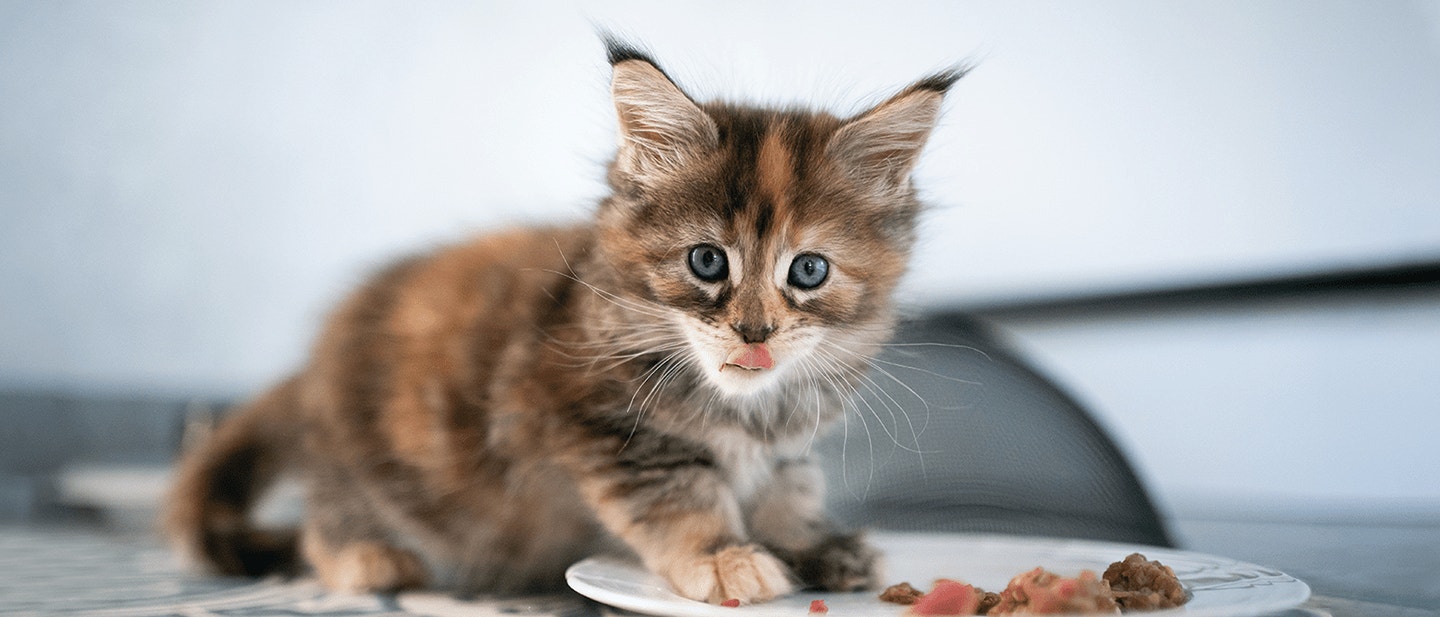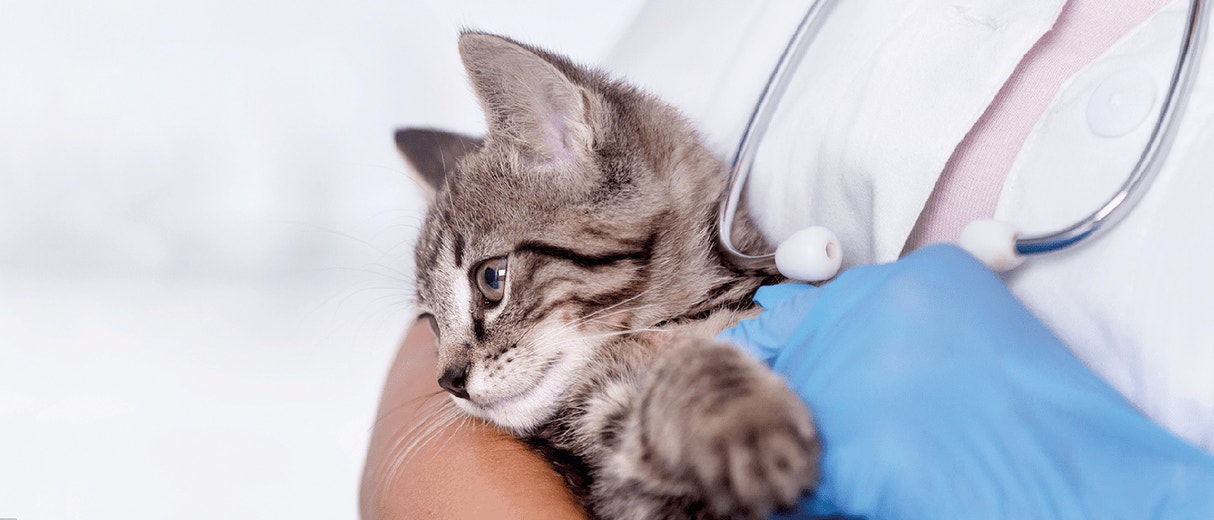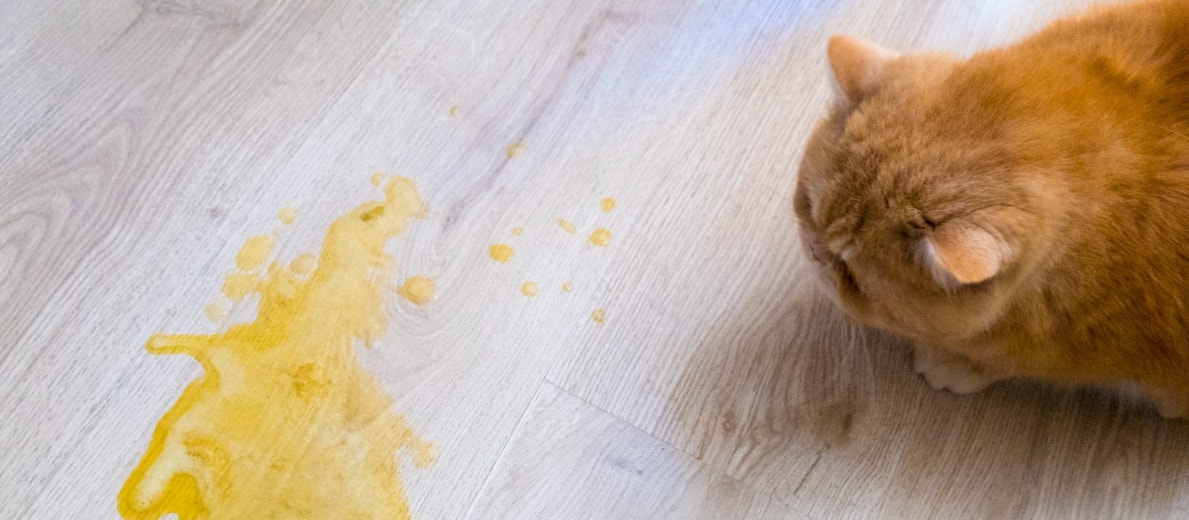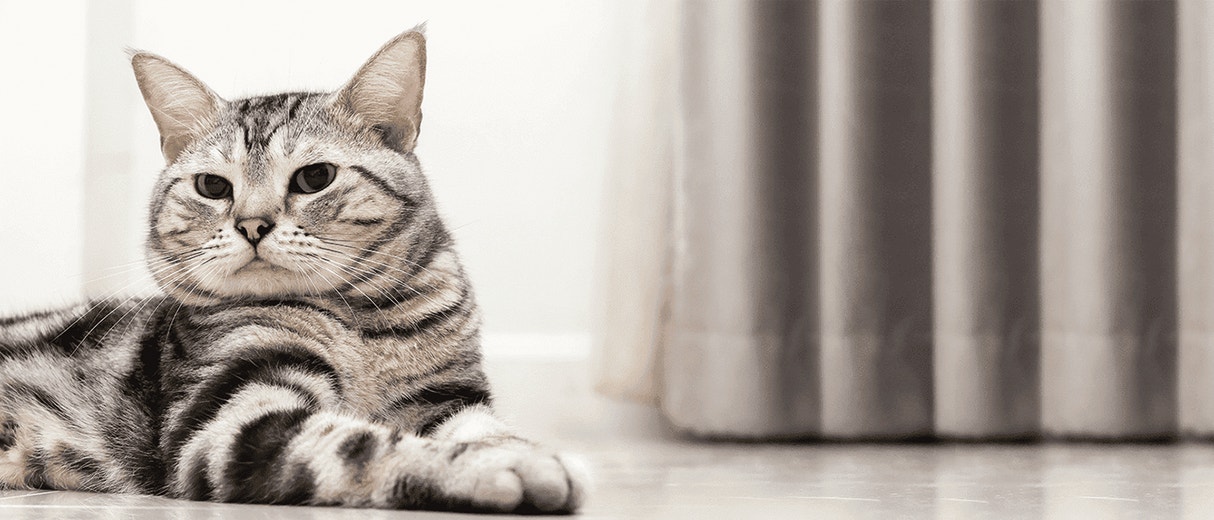
Learn When Can Kittens Eat Solid Food
While cats are known far and wide for their unmatched love and enthusiasm for food, the same cannot be said for kittens.
Guide to Feeding Solid Food to Kittens
While cats are known far and wide for their unmatched love and enthusiasm for food, the same cannot be said for kittens. In their kittenhood, cats can be quite delicate, and must depend entirely on their mother's milk for all source of food, nutrition and moisture till they are old enough to eat and digest solid food. This gradual transition in kittens from being dependent on their mother's milk to eating solid food is a crucial period, and is known as weaning. This article discussed the process of weaning, when can kittens eat solid food, when to start feeding kittens and when do kittens eat solid food.
Ideally, kittens or cat parents do not need to be worried about the weaning process as the mother cat takes it upon herself to guide their little fur babies along the process. However, if you are a parent fostering a single kitten that has been separated from its mother, it is vital for you to be aware of how to wean kittens and all the necessary information for kitten weaning so that you can see the soon-to-be-adult kitty cat through their journey from drinking milk to eating solid food.
In the absence of their mother, a kitten is entirely dependent on their foster parent for all sources of nutrition, warmth and affection, so this article is a complete guide for successful kitten weaning. It also answers the common questions from cat parents, such as when do kittens start eating food or how to wean kittens from mom.
Things to Keep in Mind Before the Weaning Process
Wondering when to start feeding kittens? It is crucial to make sure feline furries have weaned properly and at the right age. The process of weaning is a gradual one, and must not be rushed. So, in addition to knowing how to wean kittens, here are a few more things to keep in mind:
- Make sure your kitten has all the time it needs to begin the process of weaning and transitioning to solid food completely.
- Wondering how to wean kittens from mom? Consider getting packaged food designed for kittens during the process of how to wean kittens. Commercially available kitten food such as Whiskas is formulated keeping in mind the nutritional requirements and caloric intake of weaning kittens and are an excellent choice if you are wondering when do kittens eat solid food.
- Take deliberate attempts at grooming your kitten. The process of teething and weaning is not always pleasant, and grooming can help kittens stay clean and also soothe their anxiety and discomfort.
When is the Right Time to Wean Kittens?
So, when can kittens eat solid food? Kittens grow into adult cats surprisingly fast and are ready to be weaned within four weeks of age. If you are wondering when can kittens eat solid food, kittens can slowly be transitioned to kitten solid food at the onset of growing up, when they are physically more active, and can stand up on their fours and hold up their tail.
If your kitten is unable to stand or focus with its eyes, it might be a little too early to begin the weaning process. Kittens about to start weaning also begin to grow incisor and canine teeth, also known as teething or erupting. Teething can be an uncomfortable process, causing your kitten to nibble and chew to get used to the sensation of having adult teeth, and is a telltale sign that it is about to start weaning.
How to Successfully Wean Kittens?
As important it is to know when can kittens eat solid food, it is unwise to separate a weaning kitten from its mother before it is 4 weeks of age. If your kitten still has its mother around, she usually takes up the responsibility to see through the initial stages of the weaning process.
However, if you are responsible for knowing how and when should kittens be weaned, it is important to start with milk replacers instead of switching to solid food directly. Once your kitty is familiar with the new taste, you can gradually introduce it to dry and wet cat food, canned food, or home cooked meals, serving them in small pieces that are easy to chew and swallow. It is also important to feed kittens at shorter intervals, ideally every 2 to 3 hours.
Key Steps for the Kitten Weaning Process
Start at the right age
Cat parents frequently wonder, when to start feeding kittens or when can kittens eat solid food? Kittens generally start developing at a rapid pace once they are 4 weeks old. In addition to being more physically active and standing up on their fours, kittens can also focus clearly with their eyes and begin teething, as their adult incisor and canine teeth start showing. So, if you are thinking when do kittens start eating, this is the perfect time for kittens to start the process of weaning, and can be gradually switched to eating solid food.
Essential supplies needed for kitten weaning
Instead of directly shifting to solid wet cat food when do kittens start eating, kitten milk replacer and formula can help in the transitive phase of weaning, and can be fed in feeding bottles or shallow cat bowls. Since the teething process when kittens are weaned can be a little uncomfortable, be prepared to comfort your feline furry with a cosy setup, such as a fleece blanket or cat-friendly heating pads. Weaning cats also need special grooming and litter accessories such as kitten-friendly shampoos, sulphur dips, and shallow litter boxes.
Tips to introduce solid foods to kittens
If you have started introducing solid food when are kittens weaned, it is important to start by giving wet cat food or home cooked food in low spices and oil that are soft and easy to chew. Serving the kitten solid food in smaller bite-sized portions at room temperature can also help kittens in chewing. Feeding them in shorter intervals is also important.
Introducing water and complete weaning
Wondering when do kittens start eating or drinking water? While your kitten is still under 4 weeks of age, they do not need to drink water as kittens get all their moisture requirement from their mother's milk. However, if you are introducing your cat to drinking water at the time when do kittens start eating food or when are kittens weaned, it is important to offer them clean, fresh water in shallow drinking bowls that are easily accessible. You can also add natural flavour enhancers to encourage your kitten to drink more.
Tips for successful kitten weaning
Cat parents often worry, when to start feeding kittens? Kitten weaning is a gradual, yet crucial step for kittens to mature into adult cats, and it can be beneficial to know when do kittens start eating food. Here are some successful kitten weaning tips for you to keep in mind.
- Weaning kittens or, when to start feeding kittens is a gradual process when do kittens start eating food, and must not be rushed. It is important that your kitten has all the time to transition to solid food so that there are no negative impacts.
- Instead of starting directly with solid cat food when are kittens weaned, begin the weaning process by switching between kitten milk and milk replacers or formula to get your kitty acquainted with the new taste.
- If you are about to start introducing to solid foods it is important to know how to wean kittens. And wet cat food or home cooked meals should be your first choice as they are soft, and easy to chew and digest.
- Serve the solid food in smaller bite-sized portions at room temperature, making it an appetising meal for your kitty. It is also important to feed your weaning kitten at shorter intervals of 2 to 3 hours.
Since teething is an uncomfortable process, make sure to comfort your little furball with their favourite cat toys, fleece blanket, or cat-friendly heating pads. Taking time to change their litter and grooming them can also help them alleviate stress and anxiety, as well as getting them safely through the weaning process!
FAQs
-
How often should you feed a kitten?
Kittens should be fed frequently in small amounts throughout the day. For kittens over 2 months old, kitten food can be given 4 to 5 times a day. From 6 to 12 months old, the number of meals can be reduced to 2 to 4 times a day
What should your kitten drink?
It is important to keep your kitten hydrated, especially if you are feeding them dry food. Kittens do not need milk once they have been weaned off. Instead of milk, it is best to give them clean and fresh water to drink. Ensure that your kitten has fresh water to drink wherever and whenever they need it. Generally, you should start giving them water to drink once you have started giving them a little solid food. Give them fresh, clean water in a shallow bowl. It is best to place it in places where they like to relax. You should not place it in the same place as where they eat.
When should you switch kittens to kitten food?
Besides baby cat food, kittens can try small bites of solid food to familiarise themselves with it. At 2 months old, they should be weaned off mother’s milk and switch from baby cat food to wet kitten food.
Foods to avoid
Although you may have good intentions, some human foods are not recommended for cats. Human foods are high in calories, and lack the essential nutrients that cats need. Some of the food that we eat can be very harmful to cats. This includes onions and garlic, milk and dairy products, alcohol, grapes and raisins, caffeine, chocolate, raw eggs and meats, and fat trimmings and bones.
Can kittens eat human food?
Feeding kittens human food can have detrimental effects as kittens have very different dietary requirements compared to humans. Kittens require about 40 essential nutrients to deliver complete nutrition, whether the food is dry, wet, or semi-moist.
Since kittens are carnivores, animal meat is one of the safest human foods to give them as they rely on nutrients found in animal products. There are 11 essential amino acids for kittens that must be supplied in their diet:
- Arginine
- Histidine
- Isoleucine
- Leucine
- Lysine
- Methionine
- Phenylalanine
- Taurine
- Threonine
- Tryptophan
- Valine
These essential amino acids, along with other essential nutrients, are best supplied by animal meat and organs (liver, heart, and kidney). Fish, meat, and poultry are the best choices as they provide all the protein and essential nutrients your kitten needs. It can be minced, ground, or blended so your kitten can eat it easily. However, it is not recommended to feed your kitten too much fish such as tuna and salmon. These fish contain high levels of mercury and can cause mercury poisoning (dizziness, loss of balance and coordination). Make sure everything is cooked thoroughly to destroy any bacteria or parasites before feeding your kitten.
Besides meat, kittens also eat plants occasionally for roughage or fibre. The recommended vegetables for your kitten are carrots, broccoli, and spinach that have been steamed or boiled. These vegetables are also a source for vitamins and minerals. Similarly, make sure that all vegetables are washed and cleaned thoroughly before cooking. Avoid feeding your kitten raw vegetables as it cannot be digested and can cause digestion problems.
How to feed a kitten up to 4 weeks old
As kittens grow, they require different types of food and different ways of feeding to support its growth and development. When kittens are born, they obtain all the nutrition they need from their mother’s milk, which is the best baby cat food. It is important to ensure that your kittens and the mother cat are safe and away from any disturbances. This allows them to feed peacefully. Keep your kittens warm and place them in a comfortable position on their stomach as they feed. After 4 weeks, they should be weaned off and introduced to food for kittens.
How to feed a kitten from 4 weeks to 4 months old
Once your kitten reaches 4 weeks old, it may start showing an interest in solid food! You can start to gradually wean off your kitten and introduce them to a bit of solid kitten food. Dry kitten food can be mixed with water so that it is soft enough for kittens to eat easily. Wet kitten food can also be used. Place the food in a shallow dish or bowl to get them used to good eating habits. It is essential to learn how to feed a kitten properly with the right food to help them grow happily and healthily.
How to make kitten food
Homemade kitten food that is prepared using natural and fresh ingredients is a great way to introduce your kitten to different tastes and textures. This helps in their growth and development. Since kittens are carnivores, they can eat most kinds of meat like chicken, beef, and fish that have been minced or ground and then cooked.
Kittens require 4 times more protein than humans. In order to fulfil this need, homemade kitten food needs to contain at least 70 g of protein per 1000 kcal of metabolisable energy (ME). This is equal to roughly 220 g of chicken meat, or 320 g of fish. The meat should be cooked, either by steaming or boiling it. However, if you don’t know how to make kitten food, or don’t have the time to - don’t worry! Whiskas® kitten food is the best kitten food that covers all of your kitten’s nutritional needs in a wide range of delicious flavours
What should you feed a fussy kitten?
Many kittens have a preference for certain textures and flavours. Try to feed your kitten a mixture of wet and dry kitten food. You can also try the wide variety of Whiskas® kitten food to find your kitten’s favourite food.
What is the ideal diet for a kitten?
Kittens need a complete diet with the right balance of proteins, essential fatty acids, carbohydrates, minerals and vitamins. Whiskas® offers a wide range of kitten food with all the nutrition they need.
What food should you feed a newborn kitten?
Mother’s milk is the best kitten food (below 2 months) as it contains DHA which helps in the early stages of development. The colostrum is also very high in protein and helps to strengthen a kitten’s immune system.
What do I need to know after a cat vaccine?
As important as cat vaccinations are, it can leave your furry munchkin distressed, anxious and confused. To help your cat once it has been vaccinated, you can provide them with a warm, cosy bed to rest and recover, ensure they have easy access to food and water to stay well-fed and hydrated, and avoid getting them excited or riled up for nothing. With sufficient rest, love and care, your cat can get over the distress of vaccination in no time!
Is a vaccine necessary for cats?
Most cats have a higher resistance to diseases. However, in their infancy, cats can often be susceptible to various diseases, and to avoid any severe health risks that can prove fatal, certain preventive measures must be adopted. Cat vaccinations are one such measure that can significantly lower the chances of your furry pal getting sick. In addition, vaccinations are also important as they play a vital role in preventing the transmission of viruses from one cat to another, or to humans.
What are the important vaccines for cats?
To avoid any severe health complications, most cats are required to receive cat injections with core vaccines, including rabies, feline rhinotracheitis, feline calicivirus, and feline panleukopenia vaccines. The other non-core vaccinations your cat might require are the feline leukemia virus, chlamydophila felis, and bordetella bronchiseptica vaccinations, as well as cat booster vaccines.
What is a 3-in-1 vaccine for cats?
Of the cat injections that are recommended for cats, the 3-in-1 vaccine is one of the most essential vaccines that protect your cute furball against infectious diseases. The 3-in-1 vaccine, as the name suggests, is responsible for safeguarding against three diseases, namely - feline calicivirus, feline panleukopenia and feline viral rhinotracheitis. The 3-in-1 vaccine in cats is usually administered through injections.
What vaccines does a cat need?
Cats often need vaccines including rabies, tricat and tetracat, as well as the vaccines required for specific diseases. Other than the panleukopenia (or feline distemper), feline calicivirus and feline viral rhinotracheitis, your little pal might also require additional vaccination shots to prevent common diseases like feline leukaemia and bordetella. The purpose of cat vaccine is to help develop a stronger immune system and ward off potentially harmful diseases.
How long can a cat go without pooping after diarrhoea?
If the constipation is mild, regardless of after diarrhoea or in general, it should be fine. But if your cat doesn’t pass faeces for 48-72 hours, consult a vet.
Can a cat have diarrhoea with bowel obstruction?
Diarrhoea is one of the symptoms of intestinal bowel obstruction. Partial obstruction causes diarrhoea while complete obstruction causes inability to pass stool and gas. It is an extremely serious condition and requires immediate medical attention.
How long does it take for a cat to get Un-constipated?
Depending on the cause, it can take anything between a few days to 12 weeks. Usually, a diet change takes time to show effect, whereas medications can give quick relief.
Can a cat be constipated and still have diarrhoea?
When a cat has megacolon, they can have stool build-up in their colon causing constipation. However, sometime your fur kiddos can leak a little lose stool from around the hard faeces, which an be misinterpreted as diarrhoea. If you notice constipation and diarrhoea at the same time in your furball, take it to a vet without ado.
What are healthy foods for cats with constipation?
Cat food rich in fibres and probiotics can be good for cats with constipation. Also, if your cat has constipation, feed it wet food instead of dry food as that will help increase their water intake.
Does neutering calm a kitten down?
Spaying female kittens can reduce their libido or sex drive. Without adequate sex drive, the female cat is unlikely to respond to mating calls or look for potential mates in heat. So, neutering can calm down female kittens, making them more affectionate and loving.
What happens if you neuter a kitten too early?
Though early cat neutering can be helpful in population control and avoiding unwanted litters, if carried out at a drastically young age, neutering can delay the closure of bone plates, affecting the kitten’s growth. Feline babies neutered too early also can lead to a narrower urethra, increasing the risks of urinary blockages.
Do kittens change after being neutered?
Behaviours, such as their personality, training, and preferences are unlikely to change in cats after neuter. Neutering male fur babies cut them off from the source of testosterone, the male sex hormone, which can result in a change in behaviours that are driven by the sex hormones, such as roaming and aggression.
What is the best age to neuter a male kitten?
Spaying and neutering for cats are best done between the age of 5 to 6 months, the perfect age to neuter cat. However, no two cats are alike, so it is always wiser to consult your veterinarian and seek professional advice on when to get your cat neutered or spayed. Make sure your kitten receives the after-neuter care cat it deserves following the procedure.
What age do kittens drink water?
Newborn kittens at their infancy do not need to be given any additional water as they are entirely dependent on their mother's milk for nutrition and moisture. However, kittens over 4 weeks of age must drink at least 70 ml water regularly.
Do 4 week old kittens eat solid food?
Yes, kittens at 4 weeks of age must be gradually transitioned to solid food. However, dry cat food or crunchy cat treats might not be the best idea. Instead, try feeding your weaning kitten home cooked meals or wet cat food in smaller bite-sized portions.
What do you feed a 4 week old kitten?
Kittens aged 4 weeks or more should be prepared for the transitive process of weaning, and must be gradually introduced to solid food. Home cooked meals with low salt, oil and spices, as well as commercially available wet cat food are perfect for weaning kittens.
How do you introduce solid food to kittens?
Wondering when should kittens be weaned? It is unwise to suddenly introduce your weaning kitten to solid food. Instead, your little furball must undergo a gradual transition process of switching from milk to solid food, known as weaning, and is a crucial event in a feline's life.
How much to feed a kitten?
Generally, you should feed a kitten until its belly feels full. For newborn kittens, it is recommended to feed kittens 4 to 5 pouches of Whiskas® wet kitten food.
How do I store kitten food?
Bags of dry kitten and cat food should be stored in a cool, dry place. For wet kitten food that has been opened, store it in an airtight container and place it in the refrigerator.
How do I feed a fussy kitten?
Many kittens have a preference for certain textures and flavours. Try to feed your kitten a mixture of wet and dry kitten food. You can also try the wide variety of Whiskas® kitten food to find your kitten’s favourite food.
How often to feed kittens?
It is recommended to feed kittens twice a day, either with dry food, wet food, or both. You can follow our feeding guide that can be found on every Whiskas® kitten food bag.
What do kittens eat?
Most first-time owners may be wondering; what do kittens eat? From birth to 4 weeks old, kittens will have milk from their mothers. After that, they can start trying solid food. If you’re wondering on how to feed a kitten during this time, consider mixing some dry food with kitten milk or water, or use wet food so they can eat it easily.
See More Articles Like This




